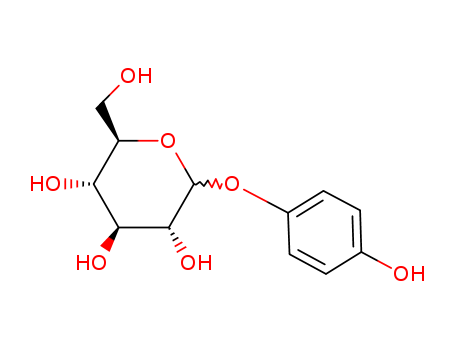- Min.Order :1 Kilogram
- Purity: 99.9%
- Payment Terms : L/C,T/T
Keywords
arbutin beta arbutin alpha arbutin
Quick Details
- Appearance:White needle crystal or powder
- Application:Skin lightening for Cosmetics
- PackAge:1kg; 10kg; 20kg
- ProductionCapacity:50|Metric Ton|Day
- Storage:Stored in room temperature and dry place, keep away from strong light and heat.
- Transportation:by air. Stored in room temperature and dry place, keep away from strong light and heat.
Superiority:
Characteristics 1. The more effective, faster and safer approach to skin lightening, minimizes live spots. 2. Promote lightening and an even skin tone on all skin types. 3. Block epidermal melanin biosynthesis by inhibiting enzymatic oxidation of Tyrosine and Dopa. 4. Higher stability and efficacy than β- form in the related beta-arbutin. SPECIFICATION Appearance: White crystalline powder Melting point(°C): 198.0-201.0 Content: ≥99.5% pH(1%): 5.0-7.0 Loss on drying: ≤0.5% Optical rotation: +180±6° Hydroquinone: not more than 10ppm Heavy metals: <20ppm Arsenic: <20 Microbial count: <100CFU/g
Details:
Arbutin is a naturally occuring derivative of hydroquinone found in the leaves of cranberry, bearberry, and blueberry shrubs, most types of pears, and many other plants. Arbutin may inhibit melanogenesis by affecting tyrosinase activity.
Arbutin has been used in the treatment of disorders of hyperpigmentation such as postinflammatory hyperpigmentation caused by acne, trauma, allergic reactions, infections, injuries, phototoxic reactions, reactions to medications, reactions to cosmetics, and inflammatory diseases.
Arbutin concentration protocols for skin whitening have not yet been established. Low concentrations have no effect, while high concentrations of about 5% or more can be as irritating as hydroquinone and may potentially result in unexpected hyperpigmentation (darkening).
Shiseido patented the use of Arbutin in skin-whitening cosmetics. Some companies bypass the patents by using Arbutin-containing plant extracts such as bearberry. There is inadequate research data showing that Arbutin extracted from plants has any skin whitening effects.
You Might Also Like
Related Searches
About|Contact|Cas|Product Name|Molecular|Country|Encyclopedia
Message|New Cas|MSDS|Service|Advertisement|CAS DataBase|Article Data|Manufacturers | Chemical Catalog
©2008 LookChem.com,License: ICP
NO.:Zhejiang16009103
complaints:service@lookchem.com Desktop View
